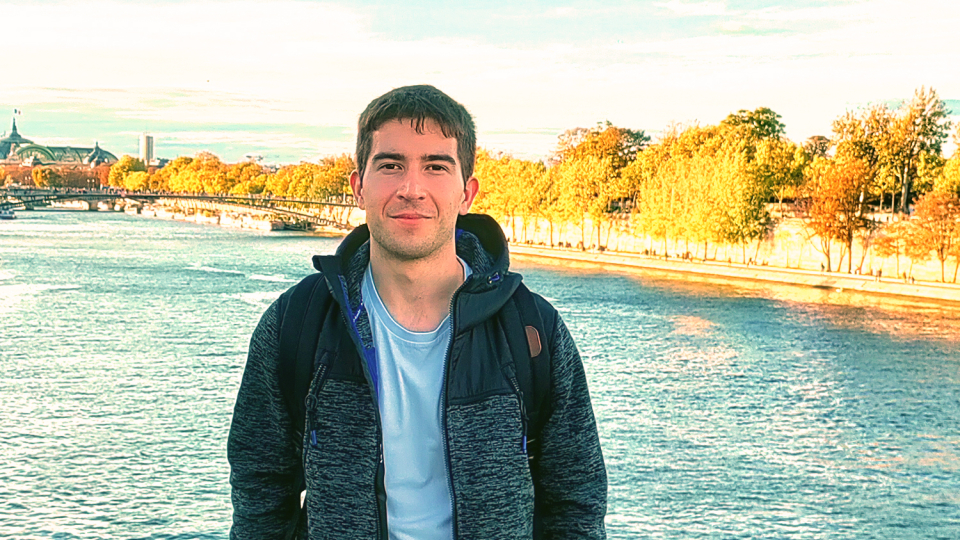Daniel Diaz Rivas awarded for best Master's Thesis in Photonics 2022
In his thesis work, Lund University Master's student Daniel Diaz Rivas shows that is possible to reconstruct the time-dependent polarisation of a very short pulse using a dispersion scan technique. Rivas recently recieved a price for best Master's Thesis by PhotonicSweden.
Johan Lindskoug – Published 21 October 2022

Hi Daniel, congratulations to the award! Could you tell us a little bit about your thesis. What is it about?
"My thesis is dedicated to the development of an ultrashort laser pulse characterization technique capable of simultaneously characterizing the pulse duration and the polarization state. This is important for many applications in ultrafast science, like nonlinear spectroscopy, coherent control as well as generation of attosecond pulses.
The dispersion scan, commonly known as d-scan, is a relatively new technique, developed between Lund University and Porto University in 2012. In the simplest implementation a 2-dimensional trace generated by recording the second harmonic generation (SHG) spectrum against a known manipulation of the spectral phase of the pulse to be characterized. The d-scan trace contains redundancy that allows to find the spectral phase via different iterative retrieval algorithms."
Why did you choose this particular topic?
"During the first years of my master's studies I became very interested in the fields of polarization, nonlinear and ultrafast optics. The topic of the thesis allowed me to continue learning about all of them and experience a common practical application to all three."
What would you say is the most important result from your thesis?
"Showing that it is possible to reconstruct the time-dependent polarization of a very short pulse (a few femtoseconds) using the dispersion scan technique. Being able to simulate the results from theoretical foundations has been equally important."
What do you hope your thesis will lead to?
"I think with further investigation it will be possible to establish a routine for measuring the polarization state together with the pulse duration for ultrashort laser pulses. This could potentially be implemented in a single-shot scheme of the d-scan to allow for complete online characterization of ultrashort laser pulses."
What makes photonics so interesting to you?
"I think the use of light for so many different applications is what mainly fascinates me. Light can be a very efficient tools to transport energy, non-invasive in medical treatment and sensitive to the smallest scales. In addition, photonics is one of the main drivers of quantum science and technology and I think this is where we are heading to."
Besides the honour, did you win something more?
"I have also received a diploma and a monetary prize."
Where did you write your Master's Thesis? At what university and programme?
"I did my Master's Thesis during my second study year in the Photonics Master’s Programme at Lund University. The work of my Master's Thesis was conducted in the research group for Attosecond Physics at the Division of Atomic Physics, which is part of the Department of Physics."
What are your future plans?
"One month ago, I started working as a PhD student in the Attosecond Physics research group. My project aims at developing the d-scan technique to measure single pulses in different wavelength regimes as well as improving the speed of the currently available retrieval algorithms. If this project becomes successful any lab that uses femtosecond laser pulses will benefit from an easy to implement online method to obtain the full temporal characterization of the laser pulses.
This will help in fundamental science, for example in attosecond physics and femtochemistry but also in industry (micromachining) and medicine (refractive surgery). It’s a great opportunity for me to be part of this rapidly growing field, to be able to continue learning and acquire practical experience."
More about the Photonics Master's Programme on Lund University's website
